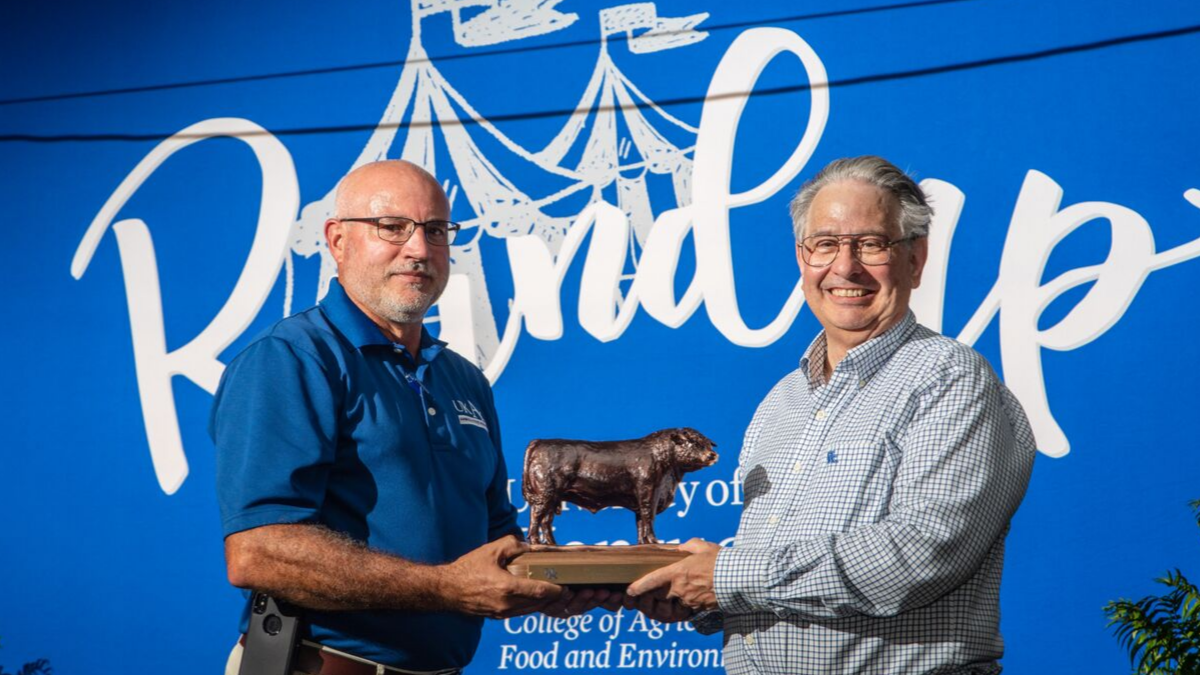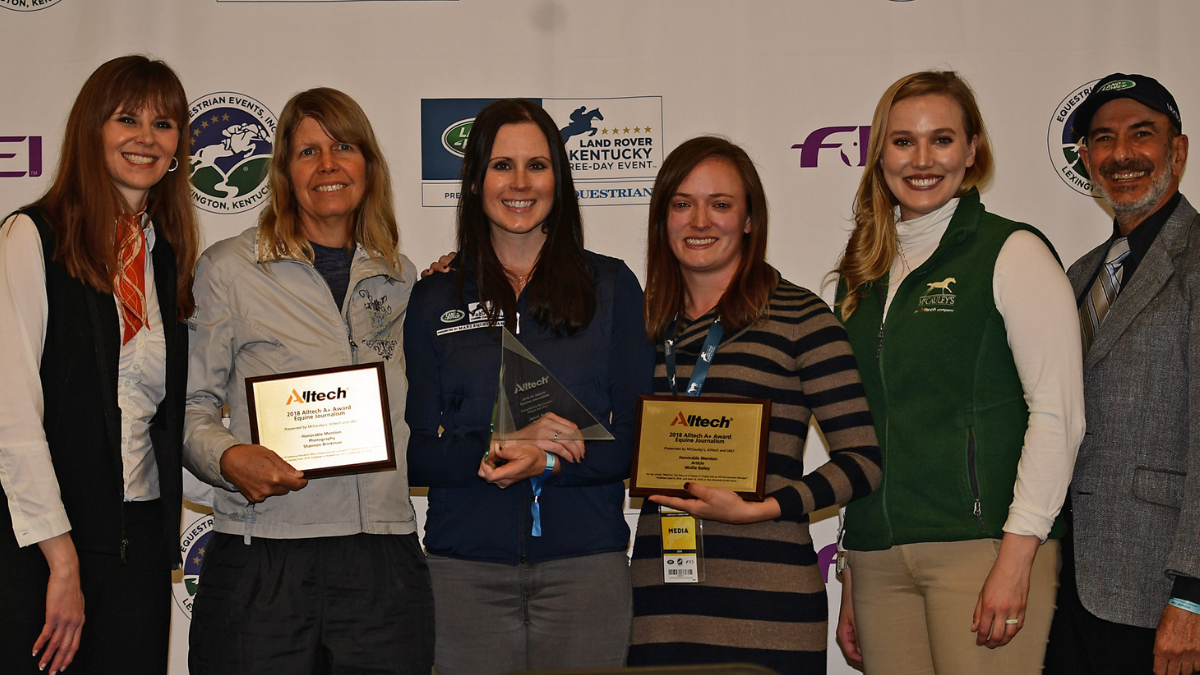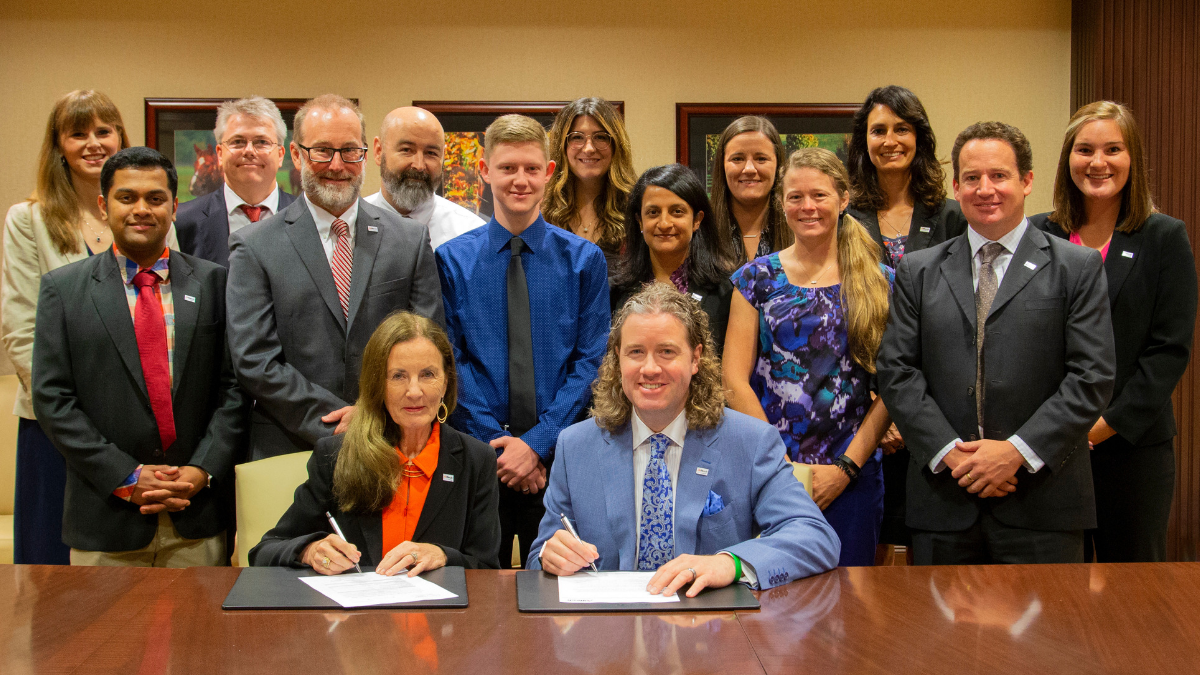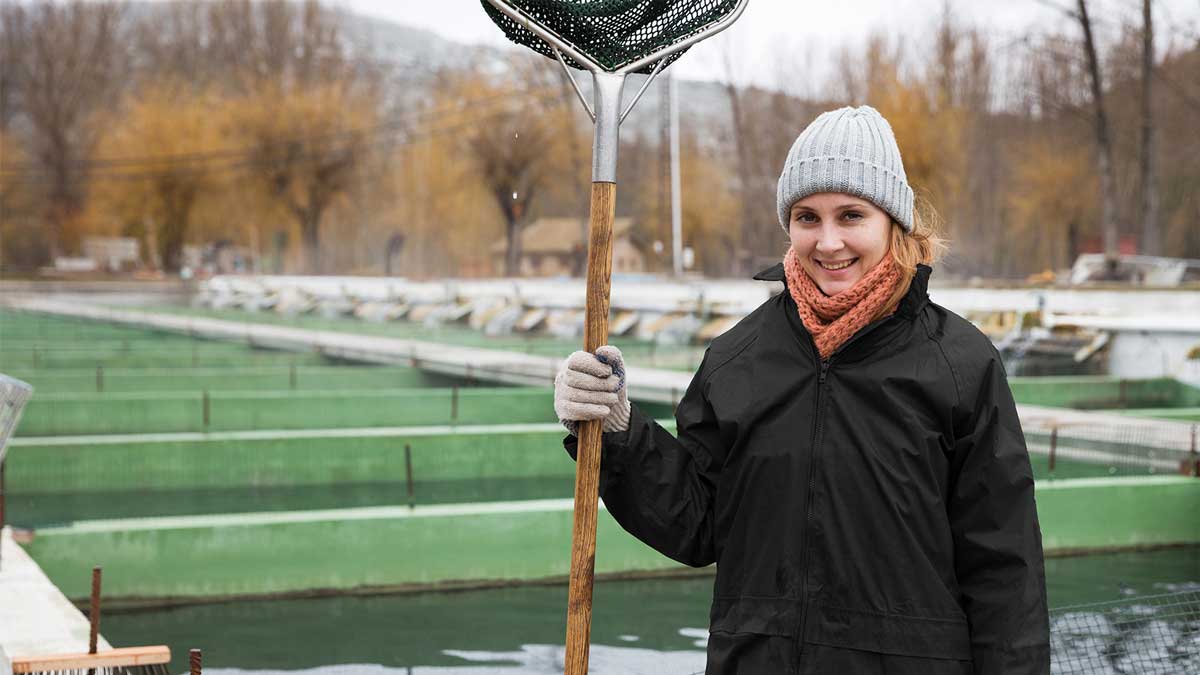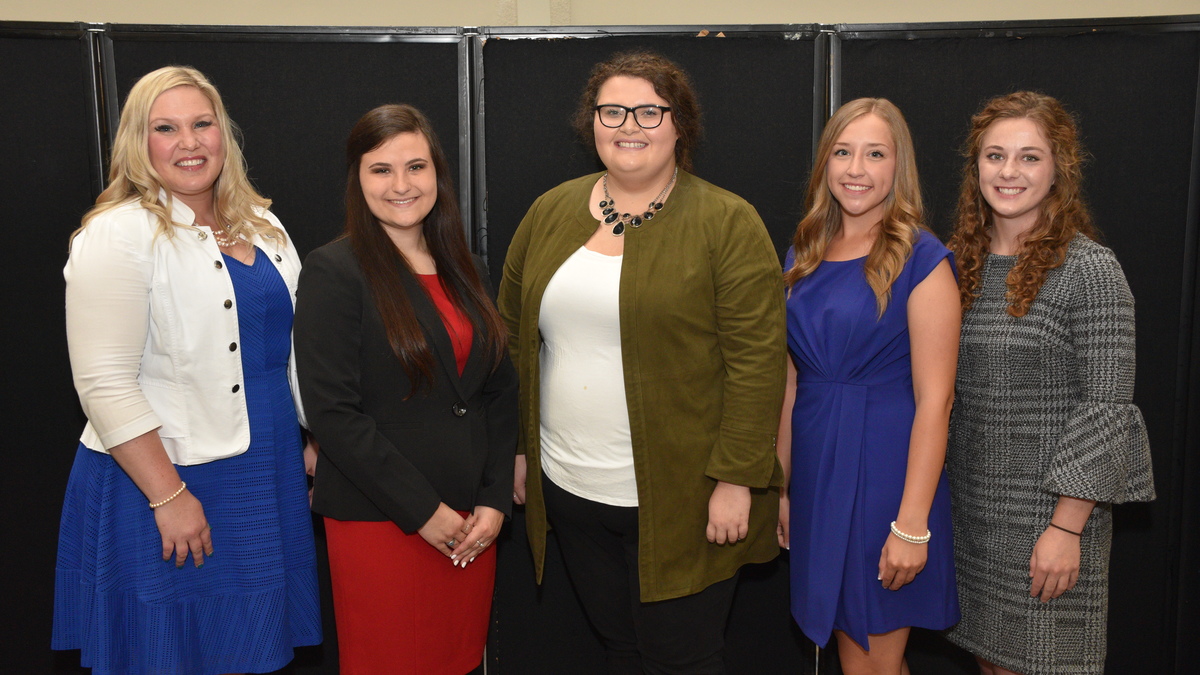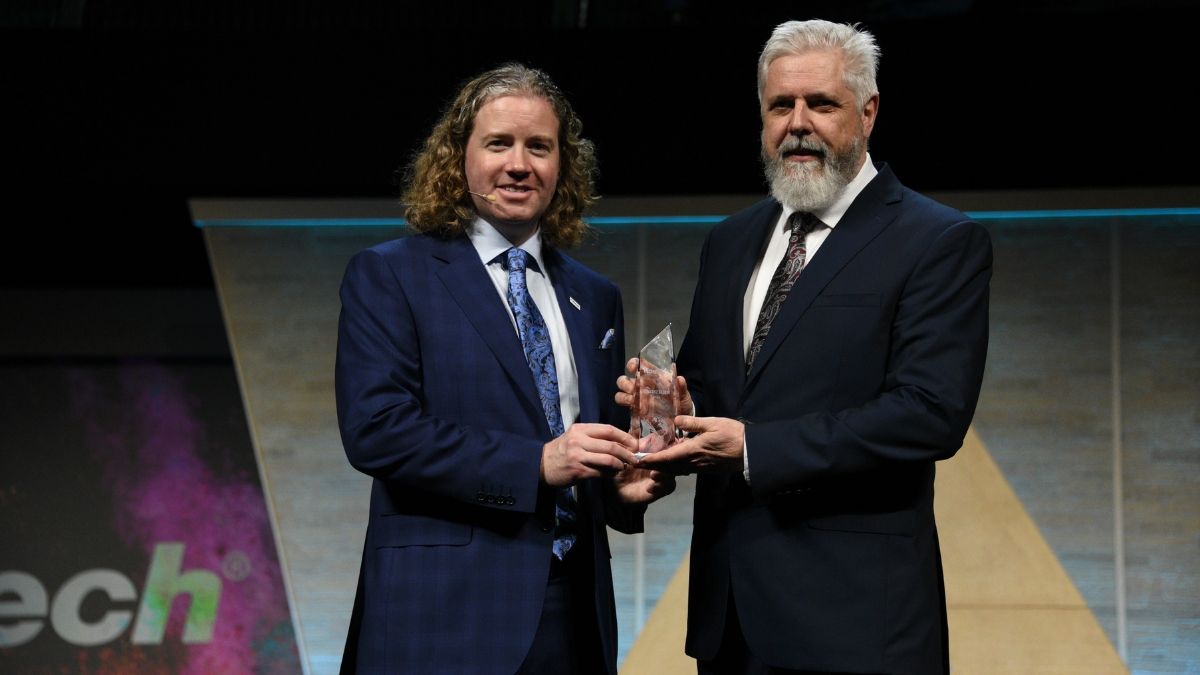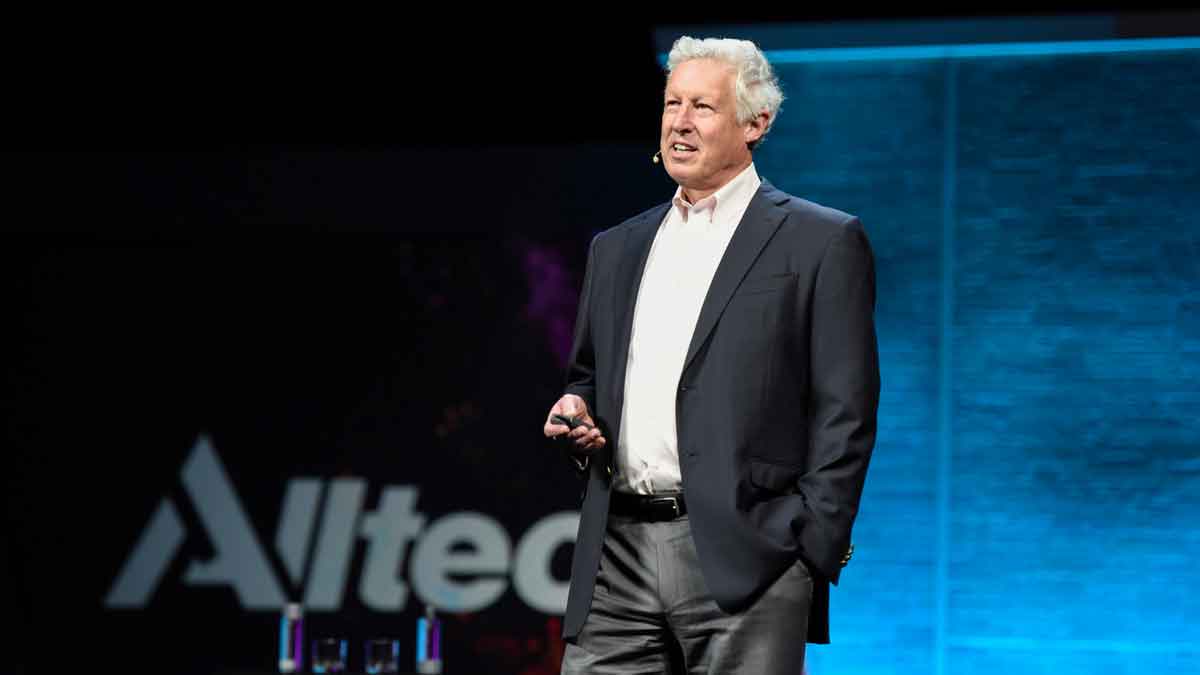Floating islands of plastic waste. Sea turtles with straws lodged in their nostrils. Images abound and emotions are high as the critical problem of single use plastics floats to the surface. At the same time, food waste is as high as 40% in some countries. How do we balance the preservation of our most perishable products with protecting our environment? We explore the complex issues with Karl Deily of Sealed Air and find opportunities for hope.
The following is an edited transcript of David Butler's interview with Karl Deily, SVP and chief commercial officer of Sealed Air. Click below to hear the full audio:
David: Hi! I'm here with Karl Deily from Sealed Air. How are you doing today, Karl?
Karl: Just fine, David. How about yourself?
David: Good. Well, thanks for joining us. We're going to talk a little bit about the war on plastics versus food waste, right?
Karl: Okay, my pleasure.
David: These are two very big issues — and, probably, plastic pollution, plastic waste, gets a lot more press right now than food waste. How and why are they connected?
Karl: David, that's a great question, of how and why food waste and plastic waste are connected. Basically, a focus of our technologies and our innovations over the years has been to develop predominantly flexible plastic solutions that protect food, food safety, and extend the shelf life for the food product, allowing them to be shipped from where they're produced to the consumer in a safe and wholesome fashion.
Obviously, as everyone knows, there are significant statistics around the amount of food that's wasted — about 33% globally and as high as 40%, even in a country like the United States. Finding ways to reduce that food waste is very much a humanitarian, economic and environmental issue. In the last two years — you're very right — solid plastic waste has become an increasingly discussed issue with sustainability and the war on plastics, and even the plastics in the ocean. So, you have a lot of emotional issues tied up in the need to provide for minimizing food waste and kind of dichotomy of, now, reducing plastic waste.
David: What's the trade-off there? How can you do both of those things at the same time?
Karl: And how we can eliminate a trade-off? You don't want a trade-off. We want to continue to advance and to minimize food waste, but we want to do it in a very sustainable fashion. So, from a packaging perspective, what we're looking at doing is making the packaging materials more circular versus the linear process. We used to take raw materials, convert them into a package material, package a product, go to the consumer and then go to the landfill. We now want the products to go through that process but, then, either be recycled back into the product or reused. We've made some significant pledges or commitments to increase the amount of recycled material we use, to make our materials more acceptable for recycling and support all the initiatives around creating a more circular economy. We can further the fight against food waste but do it in a very environmentally friendly manner, because, at the end of the day, they're both resources that are vitally needed by the world we live in.
David: Can you go into detail on some of the things that you have to do to make more plastics recyclable and make sure they actually get recycled?
Karl: Yes, David. To make materials more recyclable, we make some very complex materials that are very thin, but because they're complex and they're made of many different resins, that inherently makes them harder to recycle in the recycle streams that are available today. Something like a water bottle, that's made out of a mono-resin, is relatively easy to recycle; you just reprocess it, melt the plastic down, re-pelletize it to a resin form and re-extrude it. If you have a multilayer material, that's not near as easy to do, so our strategy is severalfold: One, to make the materials more receptive to recycling, we reengineer the materials so that they can use recycled content as well as be recycled. We even look at things like bio-derived resins that are made from renewable resources that we can use to make functional materials as well, and we're involved in doing all three.
David: Go into a little more detail on the bio-derived resins. What are the sources that you use to make those chemicals?
Karl: We have a partnership with a company named Kuraray, who has a technology that they call “PLANTIC™,” which is made from corn. That immediately excites everybody because they say corn is either used for animal feed or used for human feed and you can't divert that to make plastic materials. Well, this happens to be a very unique corn that has a very high amylose content, and that's typically not used for human feed or animal feed.
We can take this product and convert it into a resin that we're able to extrude. What's unique about it is there are other bio-derived resins on the market, but most of them don't have functionality. This particular product has a lot of functionality. It has an oxygen barrier to prevent oxidative rancidity of products. It has an abuse barrier to protect the product through the rigors of distribution. It's a very unique technology that uses a renewable resource to make a packaging product. At the end of life, at the consumer, it's typically made in a lamination, where you have two recyclable materials with this polymer trapped in between. It's easily separate-able. The corn-based product can be dissolved, and the recyclable resins that sandwich it get recycled and used again, so it's a completely renewable product.
David: That can be recycled in the current recycling streams?
Karl: Yes, David, and that's the beauty of this — the resins that we're using are the same that you would use to make a water bottle, which has a well-established recycle stream, and we can even use recycled resins in the product.
David: I have seen a lot of controversy recently about biodegradable plastics not biodegrading. What's behind that issue?
Karl: Yeah, and that's been the issue with biodegradable materials since the inception of them. For years, there have been a lot of studies where biodegradable materials have gone to landfill, they dig them up years later and they haven't degraded at all because they're not in the presence of either the right organisms, oxygen, moisture or what have you to propagate the degradation. There's also the second argument that, if you put a product in the landfill, you don't really want it degrading because, depending on what it's made of, it could potentially get in the water stream. We haven't necessarily focused a lot on biodegradable materials. We looked at solving it with a variety of other options but, at the end of the day, having some level of biodegradable product is probably part of the solution. It's just what that technology will be, but yes, it has a history of not being an acceptable technology.
David: How far out do you think we are from truly biodegradable plastics?
Karl: It's not only biodegradable products but a number of these other solutions that we have to really look at and what they are being used for. If they're just a carrier for a product, they can be used in a broader level of applications. If they're trying to protect the product, especially a food product, then they have to have functionality; they have to have properties like an oxygen barrier and a moisture barrier.
In this day and age, with merchandising, they have to be printable, so there's a lot of functionality that materials have to have. We see biodegradable materials being a component of the solution — maybe not a total part of the solution — but that's where we're seeing that marrying or coupling multiple technologies together, to minimize the amount of non-recyclable kind of linear products to a minimum and maximizing the amount of either recyclable products or things like bio-derived or even biodegradable products, in combination with the highly functional materials.
David: Okay. I have seen a lot of stories recently about various countries banning particular single-use plastics. Maybe it's most often shopping bags. Can you give us a little tour of regulatory requirements that you see popping up over the world?
Karl: Right. There are a lot of regulatory things that are occurring around the world. I think, if you take a look at the domino effect, some of the first issues started in China, where they had a National Sword regulation where they stopped importing or stopped receiving scrap plastic from around the world. They were the largest importer of scrap plastic produced in the world, and they typically reprocessed it. They decided that that wasn't in their best interest, so they stopped doing it.
India also imports a significant amount of scrap plastic. They soon followed suit, so you saw a lot of this plastic backing up around the world if they didn't have the infrastructure to address it. What you're seeing is a lot of subsequent regulations trying to help address the issue, and one of the proposed regulations that you see a lot of is banning single-use plastics, or banning certain packaging items that they think may be harder to process or what is maybe perceived as more of an environmental issue.
Straws are made out of polyethylene. Straws are very recyclable because they're made out of a single material — if you can collect them, you can recycle them — but they've been at the epicenter. You mentioned grocery bags as well. They're made out of a single resin. A lot of those products can be easily recycled, but they get the focus in that they don't provide a higher level of functionality, so they're easy to get rid of. When you see something like McDonald's, that uses 95 million straws a day, you can say, “Hey, you don't really need a straw. You don't really need a disposable bag. You can use a reusable bag. Let's just ban them.”
The reality is, some of the reusable bags, you'd have to use them 3,000 times to basically neutralize the carbon footprint of the disposable bag that’s produced today, so there's a huge amount of emotion in it right now. It's where we need to get to, David, where we get beyond emotion and start solving this issue with good scientific innovation and investment.
David: That sounds good. You've touched on greenhouse gas emissions, and that's a very important thing. It's a different issue than plastic waste in the oceans, which, of course, is a gigantic problem and we need to find a solution for that. On the other hand, we have this greenhouse gas problem, and plastics kind of help reduce greenhouse gasses, in some ways. In other ways, of course, since they're petroleum-based, many of them take energy. They contribute to greenhouses gasses. Can you go into some depth on this?
Karl: David, what you described in saying you have plastic waste, you have greenhouse gas emissions produced by both the food product as well as the packaging material, or at least the production of it, I think you really have to look end-to-end, from where food is produced to where food is finally consumed and any of the packaging material disposed of, whether it's recycled or reprocessed.
Look, there are multiple steps in there that have some level of environmental impact on the resources we use. First and foremost, the food: It can produce a significant amount of greenhouse gas if it's wasted and disposed of in the landfill, but prior to that, it's the most significant use of freshwater. It's obviously a significant use of arable land, as well as energy, so there are a lot of resources that go into producing food and getting it to the consumer. The worst thing you want to do is throw it away before the consumer can gain the nutritional benefit of that food product. That's where packaging can play a role, and you get a significant return on investment. There is a much smaller carbon footprint — by about 370-fold — compared to the food product that it's protecting, so it does provide a real benefit on greenhouse gas. It also provides a benefit from the humanitarian standpoint and economic standpoint to minimizing food waste, but it also has an environmental viewpoint as well.
I think we just have to address it in the collaborative manner, and that's why I really applaud Alltech for some of the programs and processes that it's looking at. You have to start from food production all the way through consumption and, at every step of that chain, look for how you can make it in the most efficient, effective and renewable manner possible.
David: Tell me a little bit about what Sealed Air does, just very briefly, and then, I'll ask you about that later, at the end.
Karl: Okay. We're a global corporation and, basically, our history is that we work in two areas. We're in protective packaging — so things like bubble wrap, void fill, e-commerce, heavy automotive, things of that nature — where we're protecting products from where they're made to either where they're going to be used or the consumer. A lot of that is secondary or tertiary packaging.
Then, about two-thirds of our business is in food packaging — predominantly perishable foods, whether they're fresh or frozen foods.
David: Tell me a little bit about efforts that the plastic industry, the packaging industry or consumer goods industries are taking to reduce plastic waste in the ocean.
Karl: What the industry is doing to reduce the amount of plastics that are going into the ocean — and, first and foremost, a lot of the plastics that are in the ocean don't come from food packaging; they come from things like fishing nets and all sorts of other sources. They're general garbage. I saw a statistic on even how many toothbrushes are part of this plastic waste in the ocean, but that doesn't alleviate us from having to help address the topic. Again, basically, the plastics industry is focusing on making our products much more renewable, so one would just be reducing the amount of materials we use to provide the same protection. In the last 20 to 25 years, we've reduced, through technologies, the amount of plastic that's actually used by a significant amount, so we're more productive with less initial product. That's kind of step one.
Step two is in being able to utilize materials that can be easily recycled into multiple products, whether they go back into food packaging or they go back into other forms of packaging. We need to be able to sort, segregate and reprocess those plastics. A very efficient use of the plastics is to incinerate them and get the original energy out of them. Even though that can be done in a very environmentally-friendly manner, it's not broadly considered a very acceptable thing to do, so we're not using that as a solution. We're looking at how we can take those products and then reprocess them.
We're also looking at how you design package styles to minimize the amount of plastic and using a variety of different sources of material — whether it’s more paper goods or more bio-derived products — to complement the plastic material so that they're separate-able, so you can separate those that should be recycled and separate those that go into other waste streams. We’re looking at it from a very comprehensive manner.
Our suppliers, the resin companies, the large producers of our raw material products are heavily engaged as well. We're engaged with our customers. David, that's the type of collaboration that it’s going to take to make a significant impact on addressing the amount of plastic waste that ends up in the environment, whether it's in the ocean or in landfill.
David: What do you see as a solution to the challenge, with China and maybe other markets ceasing taking recyclables?
Karl: The biggest challenge the rest of the world is going to have with China and Russia taking less of the plastic waste and reprocessing it is having the infrastructure to reprocess. Closer to home, in America, water bottles are commonly recycled. They're the most recyclable products on the market because they're made of a resin that we call PET, and there are many resources for recycling water bottles. However, many other products are made of a single resin and, in America, there are no recycle streams for those. Although the products could be recycled — I mentioned straws earlier — they're made of a different resin, a polyethylene, that's easily recyclable if the streams are set up. There is a level of investment that is going to need to be made, and you see a lot of entrepreneurs in Europe getting involved and getting involved in either mechanical or chemical reprocessing that will allow the circular economy to be developed. It’s mainly infrastructure that is the biggest inhibitor to doing it tomorrow.
David: Do you think that business will be able to close the loop on the circular economy? Will there be enough money in recycling to do that, or is it going to take initiatives from governments to make that happen?
Karl: I think you're going to see that the investment is going to come from the private industries. You're going to see joint ventures set up and collaboration set up between multiple companies to invest into infrastructure. I think you will also see governments putting tariffs on virgin resin to make it more economical to recycle because there's no argument today, David, that recycled resin is more expensive than virgin resin.
If you think about it, the processes have been there for 40 to 50 years to turn petroleum products into resins, and they've gotten very good at it. Now, to recycle a resin, you've got to sort it. You've got to claim it. You've got to clean it. You have to reprocess it, and then you have to ship it to where it's going to be used, and all of that has infrastructure that has to be put in place to get there. It will become economical over time, but I think you'll see taxes and some things levied to take the cost, the disadvantage, out of doing the right thing.
David: Okay. Are there any countries that are levying those taxes right now?
Karl: Yeah. There are some that are proposed in the U.K., as well as in continental Europe. It's interesting. Europe is going even one step further in that they're going to tax virgin resins — and they're going to also tax to a significant quantity, by the way, maybe €1 to €2 per kilogram, so a pretty high tariff when you consider the cost of the base resin product — but they're also going to tax recycled resins if they come from outside of the European Union. So, they not only want you to recycle the products, they want you to recycle the products that are used within their geography, because they're trying to solve their problem and minimize this waste. For instance, if North America or even China were to get significantly into reprocessing scrap back into resin, they don't want it coming from offshore; they're wanting it to come from their geography. I think it will get quite interesting before we get to the final solution.
David: Yeah, that sounds exciting. Are there any last points that you'd like to leave us with, something you see on the horizon that you think is really going to be good?
Karl: Yes, David. The last points I'd like to make are that we understand it's a very emotional topic, anytime you see a sea creature that's disadvantaged by pollution that's in the ocean, especially if it's plastic waste. It's obviously a very emotional issue because you have a belief you can prevent it, and we can. So, what we've been talking about are various things the industry can do to minimize product that either goes to landfill or gets discarded and may end up causing an environmental issue.
The industry is committed. The industry is investing a lot of money in it, but it will take time to get to where we need to go. The thing I really like is, in a very conservative industry, there are people signing up for pledges to make significant strides by 2025 and 2030 to address this issue without even knowing exactly how we're going to get there. We just know we need to get there, and if we don't make these commitments and we don't make these investments, we'll never get there. That's probably my last comment. We know it's emotional. Just rest assured that there's a level of awareness, acceptance and investment in innovation going on in this area.
David: Thanks so much, Karl. It was great talking to you, and I'm glad to learn a little more about that topic.
Karl: Well, thank you very much, David, and I appreciate all that Alltech is doing for the industry. This is a great conference and you have a lot to be proud of, so thank you.
Agriculture has the power to solve some of our most challenging environmental problems. We can put carbon back in the soil and forests. We can recycle nutrients and keep them out of our rivers, lakes and oceans. We can generate renewable energy. And, together, we can build a more sustainable world. Learn more about Working Together for a Planet of PlentyTM.
